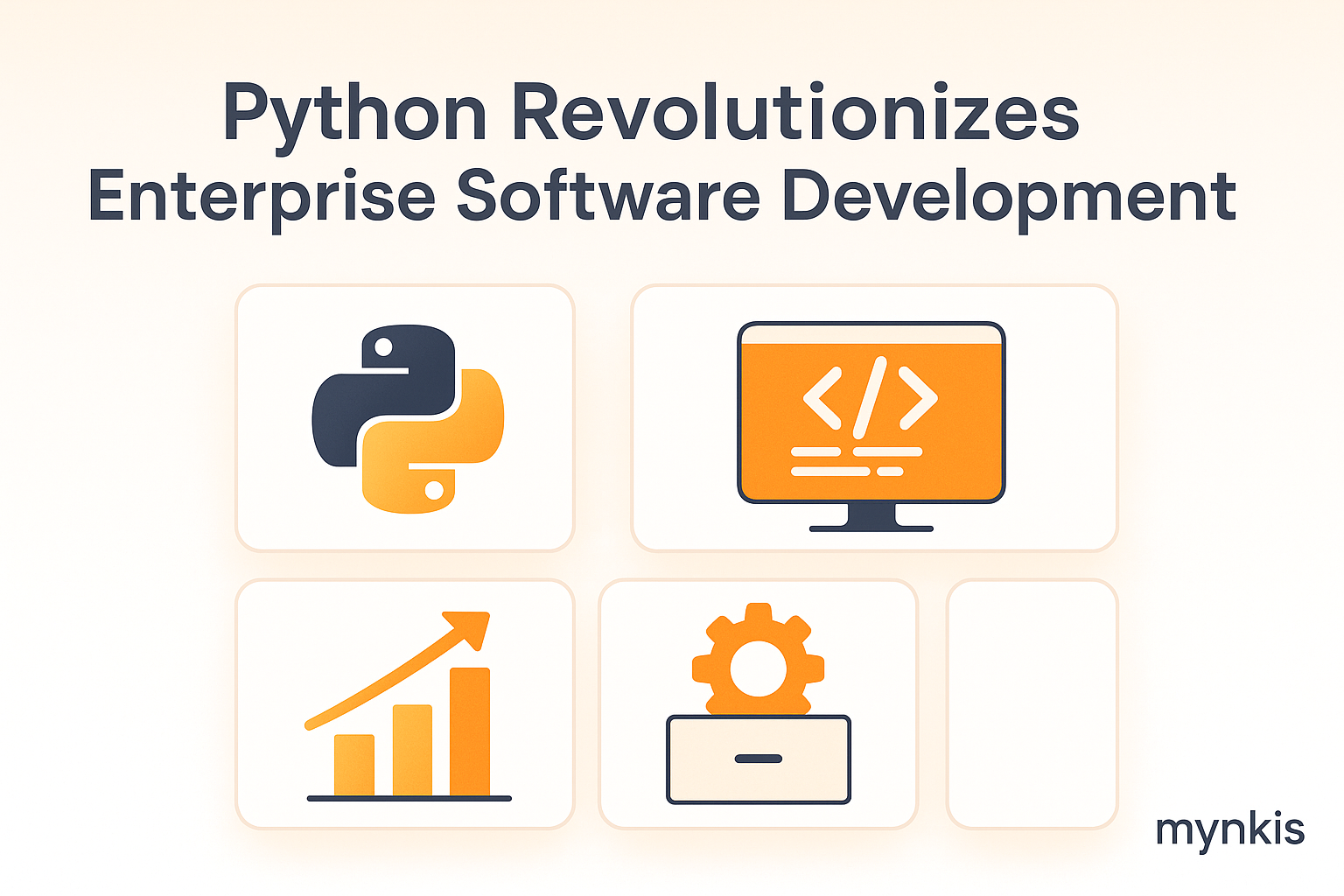Schedule a Demo
When I discuss enterprise software solutions with clients, Python often emerges as the hero. Known for its simplicity and readability, Python acts as a universal key in software development, unlocking potential across various applications. Its versatility allows developers to handle everything from simple scripting to complex web services, making it indispensable for modern businesses striving for efficiency and scalability.
One of the things I've learned from working closely with large enterprises is that scalability isn't just a buzzword—it's a necessity. Python shines here. Whether you're scaling a Django-based web application to handle millions of users or running machine learning models, Python's libraries and frameworks provide robust solutions without the need for constant refactoring. This means less headache and more growth for your business.
Let's talk money and time. Both are crucial, and Python delivers on both fronts. In my projects, I've noticed how Python's simplicity leads to fewer errors, speeding up development cycles. It also contributes to cost reduction—businesses can achieve more with less. If your practice wants an SEO-optimized website to showcase your expertise, choosing Python could accelerate your time to market significantly.
The Python community is vast and vibrant, much like the tech scene here in California. With libraries like Pandas for data analysis or TensorFlow for machine learning, the options are endless. This ecosystem not only propels innovation but also ensures that when you're looking to optimize your web presence, there's always someone ready to help you solve those complex queries.
In my experience, Python's utility in the real world is unmatched. From integrating with enterprise resource planning systems to handling big data for better customer insights, the language adapts seamlessly. For practices looking to showcase their expertise with a dynamic website, Python can manage everything from real-time analytics to custom user interfaces.
How does Python contribute to SEO for your practice's website? It's all about creating a fast, user-friendly, and content-rich site. I often use Python to automate SEO tasks, like generating sitemaps or analyzing site speed. More than that, with frameworks like Flask or Django, you can create content management systems that make maintaining your site easy and SEO-friendly.
Security is non-negotiable. Whenever I work on custom software development, ensuring a robust security framework is at the top of my list. Python has built-in tools and libraries like PyJWT for token-based authentication and SQLAlchemy to prevent SQL injection. This gives practices peace of mind when displaying sensitive client data on their professional websites.
I believe in creating solutions that last. With Python, you're investing in technology that grows with your practice. Its constant evolution ensures that the custom software development tools at your disposal are as future-proof as possible. Planning to revamp your website's user experience? Python provides the tools to stay ahead of the curve.
Integration is another reason why Python's so valuable. Whether your practice is using legacy systems or cloud services, Python's interoperability allows it to connect effortlessly. This means your new SEO-optimized website can integrate flawlessly with your existing software, simplifying your operations and enhancing your client service capabilities.
It's only fair to mention that no technology is without its challenges. Python's greatest strengths can also be its weaknesses; for instance, its general-purpose nature can lead to a lack of optimization in certain high-performance scenarios. While developing your practice's website, consider whether Python fits all your needs or if you'll need to incorporate other technologies for specific tasks.
Will your team need to learn Python? Absolutely. But here's the upside: Python's designed to be intuitive. Based on my experience, the learning curve is gentler than many other programming languages, which means your team can get up to speed faster. For practices, this translates to quicker website deployment and easier content management.
Let me share a few success stories. A health practice I consulted with switched to a Python-based website to showcase their expertise, resulting in a 50% increase in client engagement. A law firm used Python's capabilities to manage complex legal documents more efficiently. These real-world examples show how Python's features can directly benefit your practice's online presence.
As for what's next, the future looks bright. Python 3.9 introduced new syntax and improved performance, continuing the trend of year-over-year enhancements. These improvements further solidify Python's position in custom software development, especially for practices wanting to stay at the forefront of technology.
Incorporating Python into your practice's technology stack isn't just about staying trendy; it's about embracing a paradigm that offers endless possibilities. From my observations and work in the field, I've seen how Python's adaptability and support community elevate businesses. When constructing your next enterprise-level website, consider Python—it might just be the secret weapon that sets you apart in your industry.
